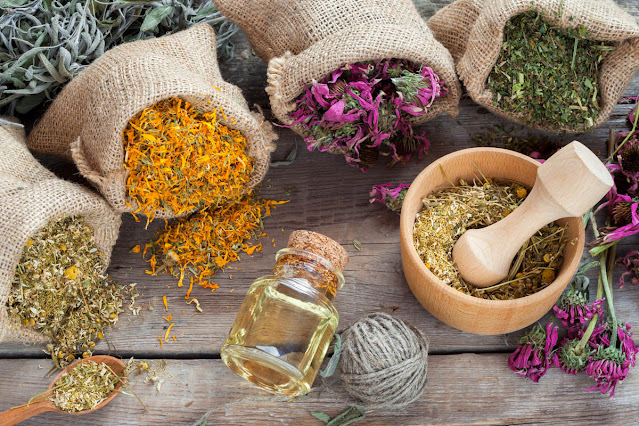Best Way to treat Stomach
I understand that you're looking for a comprehensive guide on home remedies for stomach pain. Stomach pain can have various causes, from indigestion to more serious underlying conditions. However, many people experience occasional stomach discomfort that can be effectively managed with home remedies. In this guide, we'll explore a variety of natural and holistic approaches to alleviate stomach pain. While these remedies can be helpful, it's essential to consult with a healthcare professional if your pain is severe, persistent, or accompanied by other concerning symptoms.
Table of Contents
- Introduction
- Brief overview of stomach pain causes and when to seek medical help.
- Common Causes of Stomach Pain
- Discusses the different factors that can lead to stomach pain, including indigestion, gas, acid reflux, and more.
- Prevention Tips
- Explains how to minimize the risk of stomach pain through dietary and lifestyle adjustments.
- Home Remedies for Stomach Pain
- Comprehensive list of natural remedies for various types of stomach discomfort.
- Herbal Teas
- Discusses the soothing properties of ginger, peppermint, chamomile, and fennel teas.
- Warm Compress
- How applying heat to the abdomen can alleviate cramps and muscle tension.
- Probiotics
- Explains how probiotic-rich foods like yogurt and kefir can promote digestive health.
- Dietary Changes
- Offers advice on foods to avoid and consume to prevent stomach pain, including the BRAT diet (Bananas, Rice, Applesauce, Toast).
- Aloe Vera
- Describes how aloe vera juice can help with acid reflux and inflammation.
- Apple Cider Vinegar
- Discusses the potential benefits of apple cider vinegar for indigestion.
- Peppermint Oil
- How peppermint oil capsules or tea can relieve gas and bloating.
- Ginger
- The anti-inflammatory properties of ginger and its use in alleviating nausea and indigestion.
- Activated Charcoal
- Explains how activated charcoal can absorb gas and toxins, providing relief.
- Fennel Seeds
- Discusses how chewing fennel seeds or making tea can help with digestion and gas.
- Baking Soda
- How a baking soda solution can neutralize stomach acid and ease heartburn.
- Lifestyle Changes
- Tips on managing stress, getting regular exercise, and getting enough sleep for overall digestive health.
- When to Seek Medical Attention
- Warning signs that indicate you should consult a healthcare professional.
- Conclusion
- Summarizes the importance of a balanced approach to managing stomach pain, including consulting with a healthcare provider gas ka ilaj.
- Disclaimer
- Reminds readers that this guide is for informational purposes and should not substitute for professional medical advice.
1. Introduction
Stomach pain, also known as abdominal pain, is a common complaint that can be caused by various factors. While some instances of stomach pain may require medical attention, many cases can be effectively managed with home remedies. It's essential to understand the causes of stomach pain and the circumstances under which you should seek medical help.
2. Common Causes of Stomach Pain
Stomach pain can result from a wide range of causes, including:
- Indigestion: Overeating, eating too quickly, or consuming rich, spicy, or fatty foods can lead to indigestion, causing discomfort in the upper abdomen.
- Gas and Bloating: Excess gas in the digestive system can lead to bloating and abdominal pain.
- Acid Reflux: When stomach acid flows back into the esophagus, it can cause heartburn and discomfort.
- Gastroenteritis: An infection or inflammation of the stomach and intestines can lead to symptoms like stomach cramps, diarrhea, and vomiting.
- Constipation: Difficulty passing stools can cause abdominal discomfort and pain.
- Menstrual Cramps: Many women experience lower abdominal pain and cramping during their menstrual periods.
- Food Allergies or Sensitivities: Certain foods can trigger stomach pain in individuals with allergies or sensitivities.
- Irritable Bowel Syndrome (IBS): A chronic condition that can cause various gastrointestinal symptoms, including abdominal pain.
- Gastritis: Inflammation of the stomach lining can lead to stomach pain and discomfort.
Understanding the cause of your stomach pain is crucial in determining the most effective home remedy.
3. Prevention Tips
Before we delve into specific home remedies, let's explore some preventative measures you can take to reduce the likelihood of experiencing stomach pain:
- Eat Mindfully: Slow down when eating, chew food thoroughly, and avoid overeating.
- Maintain a Healthy Diet: Consume a balanced diet rich in fiber, fruits, vegetables, and lean proteins. Avoid excessive consumption of spicy, fatty, or greasy foods.
- Stay Hydrated: Drinking enough water is essential for digestive health.
- Limit Alcohol and Caffeine: Both can irritate the stomach lining and lead to discomfort.
- Manage Stress: High levels of stress can exacerbate digestive issues. Practice relaxation techniques such as deep breathing, meditation, or yoga.
- Get Regular Exercise: Physical activity can promote healthy digestion and reduce the risk of constipation.
- Avoid Smoking: Smoking can irritate the stomach lining and increase the risk of ulcers.
By adopting these lifestyle changes, you can significantly reduce the chances of experiencing stomach pain.
4. Home Remedies for Stomach Pain
Now, let's explore a wide range of home remedies that can help alleviate different types of stomach pain. These remedies are generally safe and can provide relief for mild to moderate discomfort. However, if your symptoms persist or worsen, consult with a healthcare professional.
5. Herbal Teas
Herbal teas have been used for centuries to soothe digestive discomfort. Here are some options to consider:
- Ginger Tea: Ginger is well-known for its anti-inflammatory properties and can help relieve nausea and indigestion. To make ginger tea, simmer fresh ginger slices in hot water for 10-15 minutes.
- Peppermint Tea: Peppermint has muscle-relaxing properties that can alleviate gas and bloating. Steep peppermint leaves in hot water for a calming tea.
- Chamomile Tea: Chamomile has anti-inflammatory and soothing properties that can ease stomach cramps and discomfort. Steep chamomile flowers in hot water for a calming tea.
- Fennel Tea: Fennel seeds are known for their digestive benefits. Boil crushed fennel seeds in water to make a fennel tea that can help with pait dard ki desi dawa.
Drinking these teas in moderation throughout the day can help soothe your stomach.
6. Warm Compress
Applying a warm compress to your abdomen can help relax muscles and alleviate cramps. Simply soak a cloth in warm water, wring it out, and place it on your stomach for 15-20 minutes. Make sure the compress is not too hot to avoid burns.
7. Probiotics
Probiotics are beneficial bacteria that promote a healthy balance in the gut. Incorporating probiotic-rich foods into your diet can help maintain digestive health. Some sources of probiotics include:
- Yogurt: Choose yogurt with live and active cultures to support your gut flora.
- Kefir: A fermented milk drink that is rich in probiotics.
- Sauerkraut: Fermented cabbage that contains beneficial bacteria.
- Kimchi: A spicy Korean dish made from fermented vegetables.
Consuming these foods regularly can help improve digestion and reduce the risk of stomach discomfort.
8. Dietary Changes
Adjusting your diet can have a significant impact on preventing and managing stomach pain:
- BRAT Diet: The BRAT diet consists of bananas, rice, applesauce, and toast. These bland, easily digestible foods can be helpful when recovering from stomach upset.
- Fiber-Rich Foods: Incorporate more fiber into your diet from sources like whole grains, fruits, and vegetables. Fiber helps prevent constipation.
- Avoid Trigger Foods: Identify and avoid foods that trigger your stomach discomfort. Common culprits include spicy foods, fried foods, and dairy products (if lactose intolerant).
- Small, Frequent Meals: Instead of large meals, opt for smaller, more frequent meals to ease the digestive process.
- Hydration: Ensure you're drinking enough water throughout the day to aid digestion.
9. Aloe Vera
Aloe vera has anti-inflammatory properties and can help soothe inflammation in the stomach lining. Drinking aloe vera juice in moderation may provide relief from acid reflux and indigestion. However, it's essential to choose a pure, unsweetened aloe vera juice.
10. Apple Cider Vinegar
Apple cider vinegar is a popular remedy for acid reflux. While the scientific evidence is limited, some people find relief by mixing one to two tablespoons of apple cider vinegar in a large glass of water and drinking it before meals. Be cautious if you have a history of acid reflux, as it may worsen symptoms in some individuals.
11. Peppermint Oil
Peppermint oil capsules or peppermint tea can help relax the muscles of the gastrointestinal tract, reducing gas and bloating. Peppermint oil should be used in moderation, as excessive consumption can lead to heartburn.
12. Ginger
Ginger has anti-inflammatory properties and can help alleviate nausea and indigestion. You can use fresh ginger in cooking or make ginger tea by simmering ginger slices in hot water.
13. Activated Charcoal
Activated charcoal is known for its ability to absorb gas and toxins in the digestive tract. It is available in capsule form and can be taken as a remedy for gas and bloating. Follow the recommended dosage instructions on the product label.
14. Fennel Seeds
Chewing fennel seeds or making fennel tea can help with digestion and reduce gas and bloating. Fennel seeds have been used as a traditional remedy for centuries.
15. Baking Soda
Baking soda, or sodium bicarbonate, can be used as an antacid to neutralize stomach acid and provide relief from heartburn and indigestion. Mix 1/2 to 1 teaspoon of baking soda in a glass of water and drink it slowly. Be cautious not to consume excessive amounts of baking soda, as it can disrupt the body's acid-base balance.
16. Lifestyle Changes
In addition to dietary adjustments and home remedies, certain lifestyle changes can contribute to overall digestive health:
- Stress Management: Chronic stress can exacerbate digestive issues. Practice stress-reduction techniques such as deep breathing, meditation, or yoga.
- Regular Exercise: Physical activity helps promote healthy digestion and can alleviate constipation.
- Adequate Sleep: Getting enough restorative sleep is crucial for overall health, including digestive well-being.
17. When to Seek Medical Attention
While many cases of stomach pain can be managed with home remedies, it's essential to recognize when it's time to consult a healthcare professional. Seek medical attention if you experience any of the following:
- Severe or persistent abdominal pain
- Blood in your vomit or stool
- High fever
- Unexplained weight loss
- Difficulty swallowing
- Changes in bowel habits lasting more than a few days
These symptoms may indicate a more serious underlying condition that requires medical evaluation and treatment.
18. Conclusion
Stomach pain is a common ailment that can have various causes, from indigestion to more serious underlying conditions. While home remedies can provide relief for mild to moderate stomach discomfort, it's essential to approach your symptoms with caution and consult a healthcare professional when necessary. By making dietary and lifestyle adjustments and using natural remedies, you can take steps to alleviate and prevent stomach pain. Always prioritize your health and well-being, and don't hesitate to seek medical help when needed.
19. Disclaimer
The information provided in this guide is for informational purposes only and should not be considered a substitute for professional medical advice. If you have a medical condition or are experiencing severe or persistent stomach pain, consult with a healthcare provider for a proper diagnosis and pait dard ka ilaj




Comments
Post a Comment